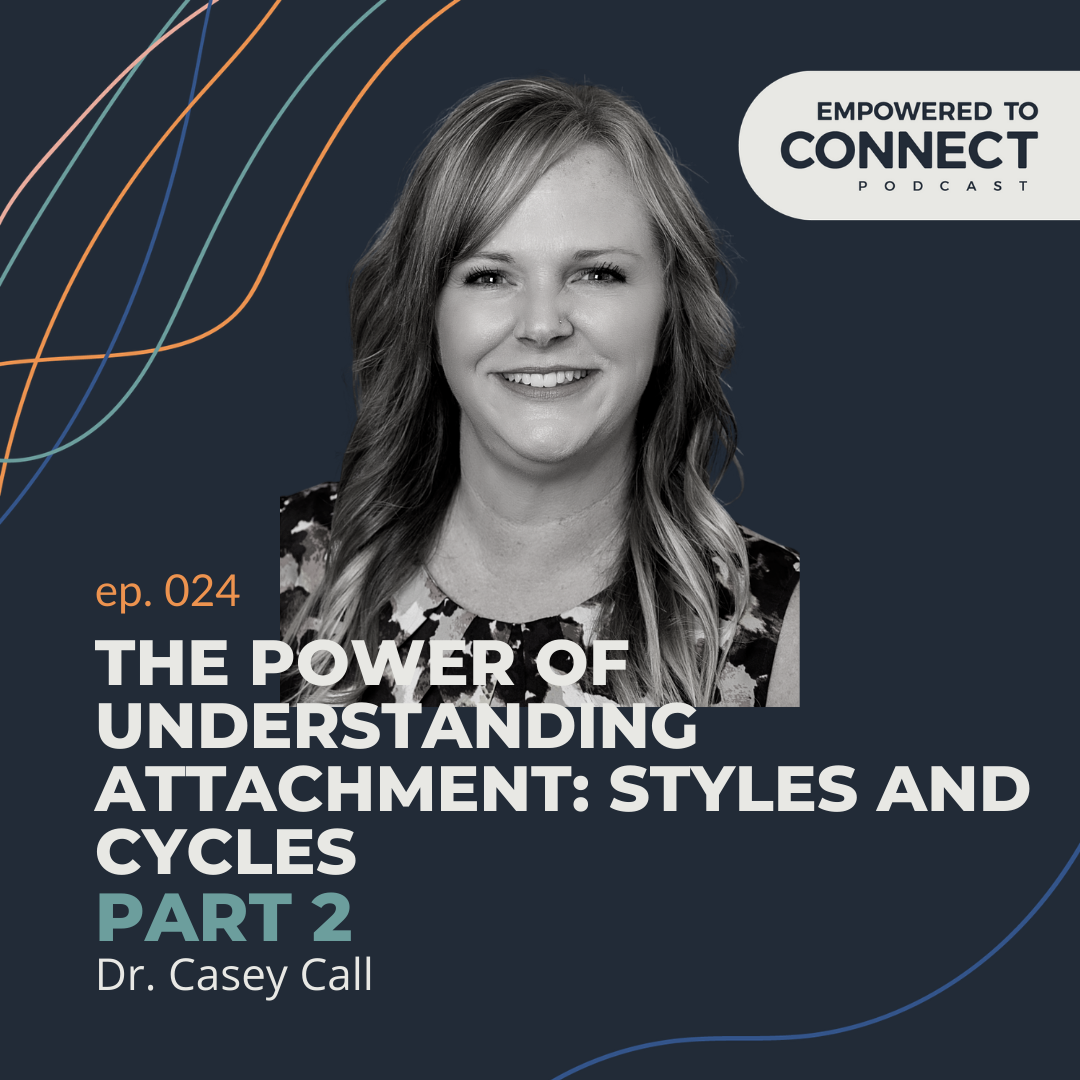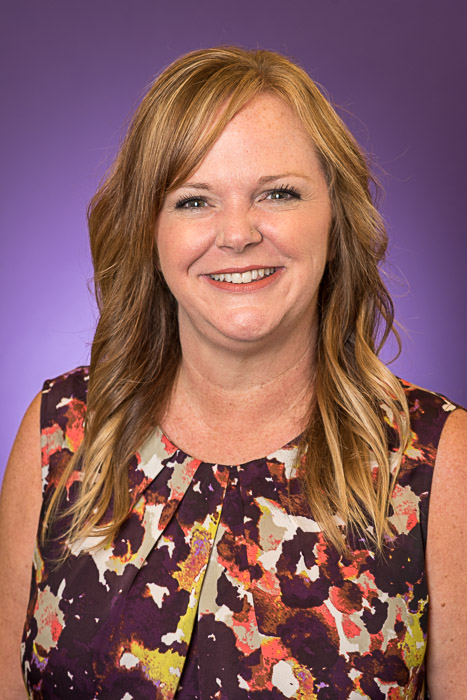Casey Call
Associate Director of the KPICD and Associate Professor of Professional Practice Texas Christian University
- Fort Worth TX
Dr. Casey Call is the Assistant Director at the Karyn Purvis Institute of Child Development
Social
Biography
Casey earned her B.S. in psychology from the University of North Texas in 1997 and then worked as a milieu therapist in the in-patient psychiatric unit at Children’s Medical Center of Dallas before returning to school. She earned a M.Ed. in Elementary Education from TCU and worked as an elementary school teacher in Coppell and Ft. Worth. After teaching for several years, Casey returned to TCU to earn her M.Ed. in Counseling and then worked as a middle school and high school counselor in Birdville I.S.D. Through these experiences in the education field, Casey developed a passion for teaching, learning, and improving educational systems.
Captivated by the work of the Karyn Purvis Institute of Child Development, Casey returned to TCU once again and earned her M.S. and Ph.D. in Developmental Psychology under the direction of Drs. David Cross and Karyn Purvis. Through her work at the KPICD, Casey combines her passions of serving children and families and bringing trauma-informed interventions into systems of care and to future professionals who work within these systems.
Areas of Expertise
Education
Texas Christian University
Ph.D.
Developmental Psychology
2012
Texas Christian University
M.S.
Developmental Psychology
2011
Texas Christian University
M.Ed.
Counseling
2004
Texas Christian University
M.Ed.
Elementary Education
1999
University of North Texas
B.A.
Psychology
1997
Languages
- English
Media Appearances
Raising Joy Podcast: Understanding Attachment Styles and Parenting with Casey Call, Ph.D., LPC
Raising Joy Podcast online
2022-09-13
Our relationships with our parents during childhood have a wide-reaching influence over the course of our lives. On this episode of Raising Joy, we talk to one of the leading experts in this field of research, known as attachment theory.
Casey Call, Ph.D., LPC, is the associate director of education at the Karyn Purvis Institute of Child Development at TCU in Fort Worth, Texas. She tells us how her background as an educator led to her passion of improving systems of care for children. We also explore how different attachment styles impact our child and ourselves.
The Science of Stress
TCU College of Science & Engineering online
2022-04-29
It’s a normal part of existence, and nobody is immune to it. When stress rears its ugly head, it’s important to understand the causes and arm yourself with ways to combat it. In recognition of Stress Awareness Month, Casey Call, associate director of education at the Karyn Purvis Institute of Child Development and associate professor of professional practice in the TCU Department of Psychology, shares the different ways we experience stress and how to best deal with it.
Did the Pandemic Slow My Child's Development? Here's What Experts Say
CookChildren's Checkup Newsroom online
2022-04-04
“I would say the pandemic has definitely taken people off of their typical developmental trajectory,” said Casey Call, Ph.D., LPC, associate director of professional practice and associate director of education at TCU’s Karyn Purvis Institute of Child Development. “In intervening with children there are two big areas that we focus on. One is building healthy relationships and the other is practicing regulation. The students who haven’t been in a classroom consistently or had any early childhood education have the potential to really get off of their developmental trajectory in these two skills.”
Are Time-Outs Harmful to Kids? The Latest Research Says Otherwise
TIME online
2019-10-15
“We advocate and teach caregivers to use time-ins instead of time-outs as a discipline practice with vulnerable children,” says Casey Call, assistant director of the Karyn Purvis Institute of Child Development at TCU.
Trauma inflicted on border kids proves Americans 'have lost our minds,' mental-health expert says
Dallas Morning News online
2018-06-20
When children are distressed, they’ll naturally turn to a caregiver for comfort and support. But in a situation where they can’t find that comfort, they’ll remain in a state of chronic stress that “wears out all of your systems,” Call said.
A New Resource for Clinicians: Attachment Theory in Action
Karyn Purvis Institute Of Child Development online
2018-01-17
Dr. Call considers Attachment Theory in Action to be a powerful resource for both professionals and college students: “I’m excited about this book because it offers so many practical insights from many attachment-based interventions. I think child development professionals will find the information in Attachment Theory in Action fascinating and helpful as they work to bring healing to children and youth from hard places. I’m looking forward to introducing college students in our Child Development Program to this volume when I use it as a textbook in the classes I teach at TCU.”
Articles
The Pilot of a Therapeutic Family Camp Intervention to Improve Adoptive Family Functioning
Adoption Quarterly2022
The trauma-related emotional and behavioral struggles of adopted children can affect the adoptive family system due to the emotional interdependence of families. To meet the needs of adoptive families, a two-weekend therapeutic family camp intervention was developed from an existing 2-3 week camp model for adopted children called Hope Connection®.
Effectiveness of a trauma-informed intervention in a deinstitutionalization programme in rural Rwanda
Child & Family Social Work2022
Rwanda established a programme to end institutional care and transition children to family-based care. As part of their process in a rural area of the country, caregivers who reunited with or adopted a child from institutional care received training in a trauma-informed intervention (Trust-Based Relational Intervention® [TBRI®]). To evaluate the potential usefulness of this training, a mixed-methods, retrospective design was used to examine caregiver-perceived changes among their reunited/adopted children from pre-TBRI training to the present day.
Experiences of lay social workers trained in a trauma-informed intervention in the deinstitutionalization of Rwanda
Journal of Children's Services2021
Purpose
Rwanda established a deinstitutionalization program to end institutional care and transition to family-based care for children. Part of their program involved training local volunteers in an evidence-based, trauma-informed caregiving model, Trust-Based Relational Intervention (TBRI), to provide education, support and TBRI training to caregivers who reunited or adopted children from institutional care in Rwanda. This study aims to describe the process of disseminating a trauma-informed intervention, TBRI, as part of the national deinstitutionalization program in Rwanda.
Attachment classification and years of service in a sample of human service providers working in child welfare
Journal of Human Behavior in the Social Environment2020
Employee turnover is a pressing problem facing human service professions, especially professionals providing services in the child welfare system. Few studies have examined whether psychological characteristics contribute to turnover.
Sensory processing in children with a history of maltreatment: an occupational therapy perspective
Vulnerable Children and Youth Studies2020
Children with a history of maltreatment exhibit differences in a variety of domains, including sensory processing. However, little is known about how domain-specific sensory processing deficits differ by the type of maltreatment experienced. The focus of the current study was to investigate the relationship between abuse, neglect, or no maltreatment on seven sensory domains in a sample of adopted children.
More than words: Computerized text analysis of child welfare professionals’ Adult Attachment Interviews
Journal of Human Behavior in the Social Environment2019
Studying the attachment representations of child welfare workers can benefit workers and the vulnerable populations they serve. The Adult Attachment Interview (AAI) is the most widely used and well-validated measure of adult attachment but is also costly and time-consuming to score.
Sensory Processing in Children With a History of Maltreatment
American Journal of Occupational Therapy2019
This study is a secondary analysis of pre-test data collected for an intervention study. The intervention study included parents who were interested in learning about relationship and developmental needs of adopted children with a history of maltreatment, as well as practical strategies to improve child outcomes.
The role of attachment classification on disclosure of self and rater-reported adverse childhood experiences in a sample of child welfare professionals
Children and Youth Services Review2017
Previous work has found that child welfare professionals have both higher self-report prevalence of adverse childhood experiences (ACEs) (Howard et al., 2015) and higher rates of insecure attachment (Howard et al., 2013) than normative samples. Although adult attachment and ACEs are both prolific areas of research in the developmental literature, little is known about how attachment representations may affect an individual's report of attachment-related ACEs.







